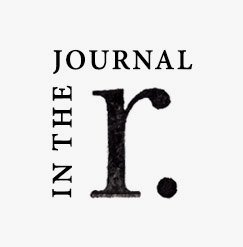the 2017 Philadelphia Asian American Film Festival: 3 Documentaries To Watch
The George Takei-narrated documentary "And Then They Came For Us" explores the personal stories of interned Japanese Americans during the 1940s.
This November, the annual Philadelphia Asian American Film Festival explores themes of incarceration and the struggle to define Japanese American identity during a particularly tense period in American history. In this special guest post for Rikumo Journal, PAAFF festival director (and friend of Rikumo) Rob Buscher highlights three new documentaries to watch during the festival's Japanese American Showcase.
From silent film actor Sessue Hayakawa to James Beard Award-winning chef Nobuo Fukuda and everything in between – Japanese Americans are the subject of Philadelphia Asian American Film Festival’s (PAAFF) main program showcase this November 9-19, 2017. While there have been dozens of films made about the incarceration experience, three new documentaries included in the showcase were chosen for their unconventional approaches to telling this story.
Feature documentary "Relocation, Arkansas" explores the experiences of two Japanese American families who chose to remain in the deep South after Jerome and Rohwer camps were closed. Navigating racial segregation in the Jim Crow era, these families worked as sharecroppers living in shotgun houses among descendants of African slaves, yet were allowed to attend whit- only schools. A fascinating reflection on the racial dynamics of pre-Civil Rights Era America, the film also tells the unlikely tale of the small-town Arkansas mayor of Italian descent who worked tirelessly to ensure the preservation and remembrance of these two incarceration sites. Documentary subject and Jerome incarceration survivor Alice Takemoto and her son Paul are expected in attendance for a post-film Q&A.
Another film, "Resistance at Tule Lake" recounts in unnerving detail an aspect of the incarceration that is often overshadowed by the dominant narrative of cooperation and military service. Director Konrad Aderer, dispels that myth by telling the long-suppressed story of Tule Lake Segregation Center through his engrossing documentary that exposes the worst of the US government’s violations of civil liberties, and organized resistance by Japanese Americans behind bars. Aderer is expected in attendance to lead a post-film discussion with Tule Lake camp survivor and Philadelphia JACL Chapter member Ed Kobayashi.
A film still from "Resistance at Tule Lake."
Another documentary "And Then They Came for Us," narrated in part by George Takei, brings history into the present by contextualizing the incarceration story within the efforts of several contemporary activists as they speak out against the Muslim registry and travel ban. An inspiring and cautionary tale for these dark political times, this film will be preceded by short documentary One-Two-One-Seven that tells the story of a Nisei (second generation) woman whose parents decided to commit suicide rather than suffer the indignity of incarceration.
In addition to this three-film series of documentaries related to wartime incarceration, the showcase also highlights inter-generational trauma experienced by Sansei (third generation) and Yonsei (fourth generation) community members through a combined program of four narrative and documentary short films titled “Legacies of Camp”. Offering a broad range of perspectives from narrative short "The Orange Story" about a grocer who must abandon everything as he prepares for evacuation, to experimental short "Sansei Dream" about a young farmer who uncovers the truth about his Nisei mother’s dark past through a subconscious dream state. Another short in this program 9066, conveys an intimate documentary portrait of the Yonsei filmmaker Andrew Okada’s grandmother and the unspoken bond of trauma that exists between them. Lastly, in short documentary Cliff Superfan! we learn about amateur historian Cliff Hayashi’s attempts to preserve the history of incarceration.
Here's the complete list of JA Showcase programs, outlined below in order of sequence. Find the full program listing here.
The Dragon Painter – Opening Night Film
Thursday November 9 from 7-11PM at Lightbox Film Center, 3701 Chestnut St
Legacies of Camp Shorts
Saturday November 11 from 11:30AM-12:50PM at Institute of Contemporary Art, 118 S. 36th St
And Then They Came for Us
Saturday November 11 from 1:10-2:30PM at Institute of Contemporary Art, 118 S. 36th St
Relocation, Arkansas
Saturday November 11 from 3:30-5:20PM at Lightbox Film Center, 3701 Chestnut St
Aunt Lily’s Flower Book
Saturday November 11 from 6:15-7:15PM at Lightbox Film Center, 3701 Chestnut St
Far Western
Thursday November 16 from 7:45-9:45PM at Fleisher Art Memorial, 719 Catherine St
Kakehashi: A Portrait of Chef Nobuo Fukud
Saturday November 18 from 11AM-12PM at Asian Arts Initiative, 1219 Vine St
Resistance at Tule Lake
Saturday November 18 from 3:30-5:15PM at Asian Arts Initiative, 1219 Vine St
A version of this article originally appeared in the October 16 edition of Pacific Citizen. Visit www.pacificcitizen.org for more details.
WORDS BY ROB BUSCHER
PHOTOGRAPHY COURTESY OF THE PHILADELPHIA ASIAN AMERICAN FILM FESTIVAL


